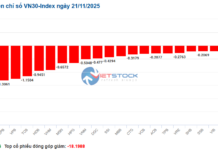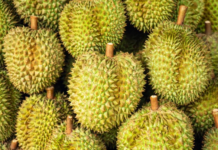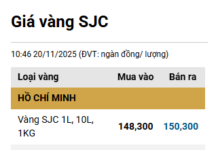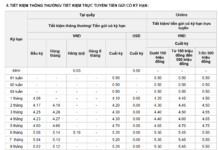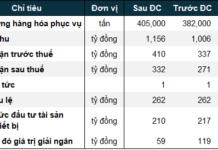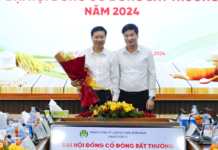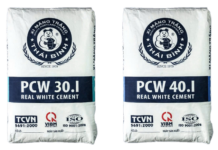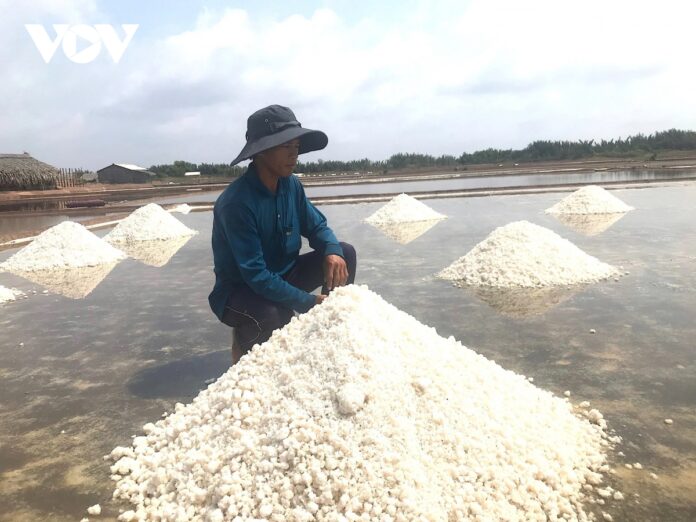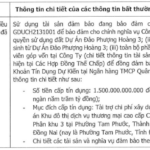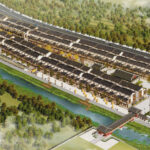Salt farmers in Ba Tri district, Ben Tre province, including Mr. Van Lap Dung, are facing challenges due to difficulties in finding buyers for their harvest and a significant drop in salt prices compared to previous years. During the same period last year, salt prices fluctuated between VND90,000 and VND100,000 per giạ (45 kg), but they have now decreased to VND45,000-50,000 per giạ, reflecting a nearly 50% reduction. In remote areas with inconvenient transportation, prices are even lower.
“The price has dropped to VND45,000 per giạ. We have no choice but to sell at a lower price when the buyers offer less. Most farmers have to sell their harvest to prepare for the next crop and because they lack storage space,” Mr. Dung lamented.
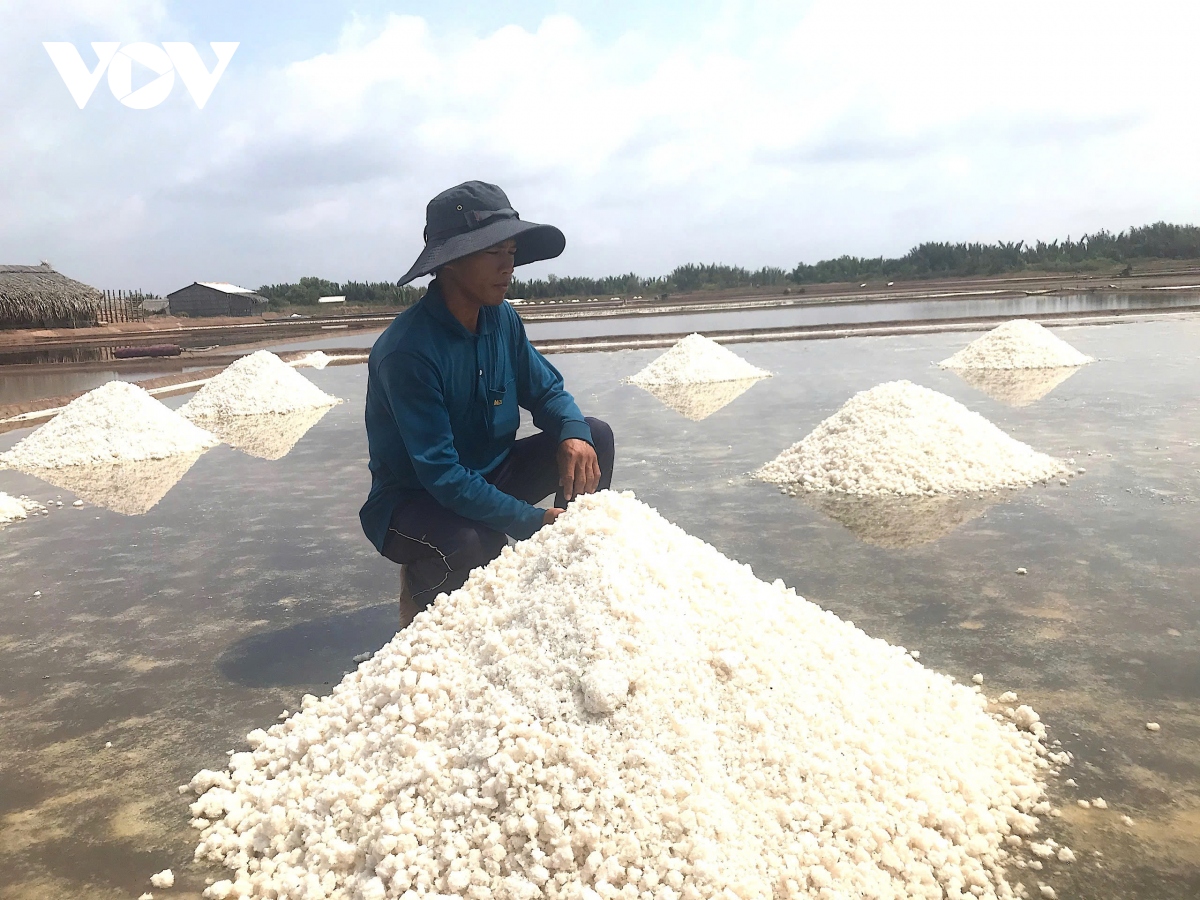
Ben Tre maintains over 1,300 hectares of salt fields annually.
With the current low prices, salt farmers are not making significant profits, and their income is even lower than that of rice farmers. It is a tradition for Ben Tre’s salt farmers to store their harvest in huts near the salt fields until the end of the season, hoping for better prices. However, despite the low prices, they have to sell their salt to cover their living expenses and reinvest in the next crop.
Ben Tre is one of the few provinces in the Mekong Delta region that still practices salt production. The province produces over 1,300 hectares of salt annually, mainly in the coastal districts of Ba Tri and Binh Dai. In recent times, the salt market has been unstable, and infrastructure investments in concentrated salt-producing areas have been inadequate. Additionally, there have been cases of traders taking advantage of salt farmers by forcing them to sell at low prices, resulting in the familiar refrain of “good harvest, low prices.”
Mr. Khong Minh Tang, Chairman of the People’s Committee of Bao Thanh commune, Ba Tri district, stated that the commune has approximately 600 hectares of salt fields, and currently, salt farmers have a stockpile of over 10,000 tons. Along with improving productivity, the local government encourages salt farmers to produce clean and high-quality salt.
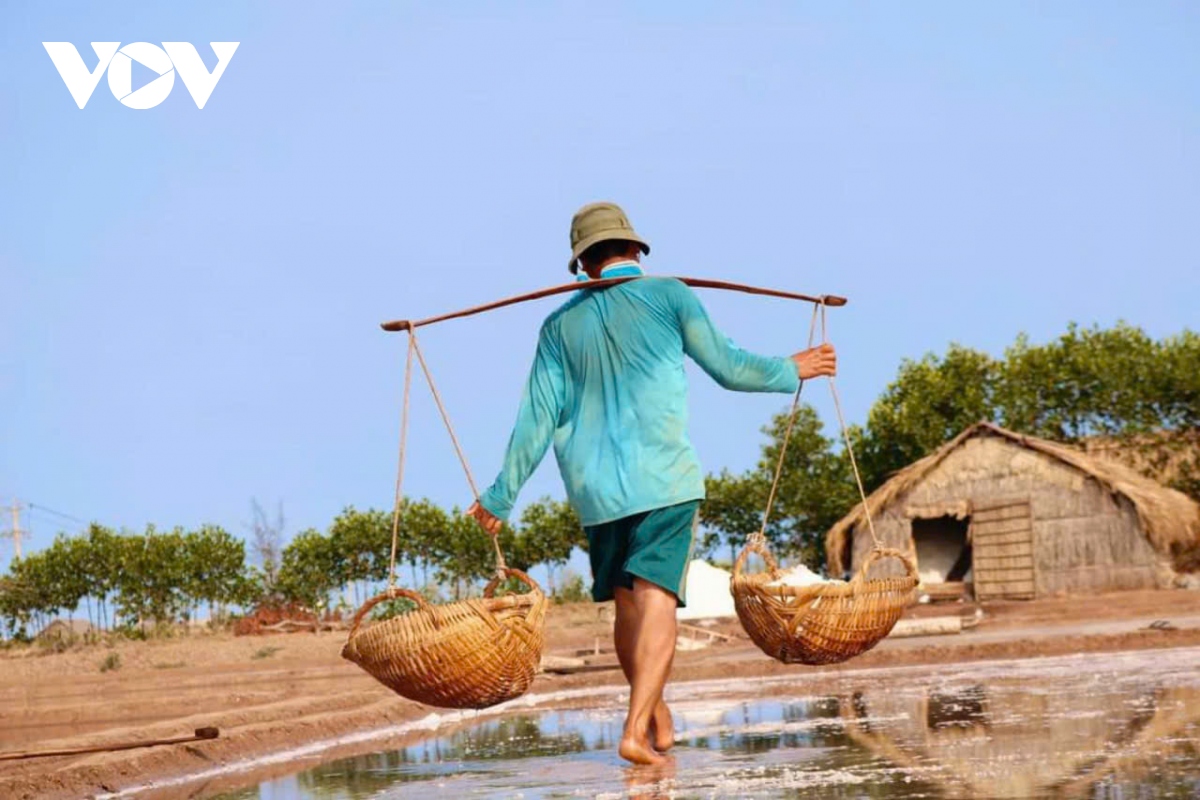
Salt farming is arduous work, yet income remains unstable and low.
“We will continue to enhance the value of the salt-producing region in our commune. We are proposing to the provincial authorities and relevant agencies to develop an infrastructure project for the salt fields. This project has been surveyed for several years but has not been implemented. If it is implemented soon, the infrastructure development will increase the value of salt, and the lives of people in the salt-producing region will improve,” said Mr. Khong Minh Tang.
Salt production is a challenging occupation, often involving long hours in the sun, and the unpredictable market prices add to the farmers’ woes. To support the salt farmers of Ben Tre, it is essential that the local government and relevant authorities focus on improving the quality of commercial salt and addressing the infrastructure challenges in the salt-producing regions.

